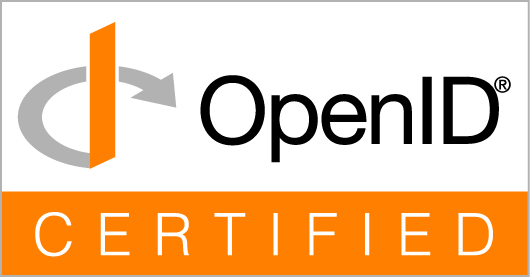mod_auth_openidc is an OpenID Certified™ authentication and authorization module for the Apache 2.x HTTP server that implements the OpenID Connect Relying Party functionality.
This module enables an Apache 2.x web server to operate as an OpenID Connect Relying Party (RP) towards an OpenID Connect Provider (OP). It relays end user authentication to a Provider and receives user identity information from that Provider. It then passes on that identity information (a.k.a. claims) to applications protected by the Apache web server and establishes an authentication session for the identified user.
The protected content, applications and services can be hosted by the Apache server itself or served from origin server(s) residing behind it by configuring Apache as a Reverse Proxy in front of those servers. The latter allows for adding OpenID Connect based authentication to existing applications/services/SPAs without modifying those applications, possibly migrating them away from legacy authentication mechanisms to standards-based OpenID Connect Single Sign On (SSO).
By default the module sets the REMOTE_USER variable to the id_token [sub] claim, concatenated with the OP's Issuer
identifier ([sub]@[iss]). Other id_token claims are passed in HTTP headers and/or environment variables together with those
(optionally) obtained from the UserInfo endpoint. The provided HTTP headers and environment variables can be consumed by
applications protected by the Apache server.
Custom fine-grained authorization rules - based on Apache's Require primitives - can be specified to match against the
set of claims provided in the id_token/ userinfo claims, see here.
Clustering for resilience and performance can be configured using one of the supported cache backends options as
listed here.
For a complete overview of all configuration options, see the file auth_openidc.conf.
This file can also serve as an include file for httpd.conf.
mod_auth_openidc is OpenID Certified™ and supports the following specifications:
- OpenID Connect Core 1.0 (Basic, Implicit, Hybrid and Refresh flows)
- OpenID Connect Discovery 1.0
- OpenID Connect Dynamic Client Registration 1.0
- OAuth 2.0 Multiple Response Type Encoding Practices 1.0
- OAuth 2.0 Form Post Response Mode 1.0
- RFC7 7636 - Proof Key for Code Exchange by OAuth Public Clients
- OpenID Connect Session Management 1.0 see the Wiki for information on how to configure it)
- OpenID Connect Front-Channel Logout 1.0
- OpenID Connect Back-Channel Logout 1.0
Documentation can be found at the Wiki (including Frequently Asked Questions) at:
https://github.com/OpenIDC/mod_auth_openidc/wiki
For questions, issues and suggestions use the Github Discussions forum at:
https://github.com/OpenIDC/mod_auth_openidc/discussions
For commercial support contracts, professional services, training and use-case specific support please contact:
[email protected]
Sample configuration for using Google as your OpenID Connect Provider running on
www.example.com and https://www.example.com/example/redirect_uri registered
as the redirect_uri for the client through the Google API Console. You will also
have to enable the Google+ API under APIs & auth in the Google API console.
OIDCProviderMetadataURL https://accounts.google.com/.well-known/openid-configuration
OIDCClientID <your-client-id-administered-through-the-google-api-console>
OIDCClientSecret <your-client-secret-administered-through-the-google-api-console>
# OIDCRedirectURI is a vanity URL that must point to a path protected by this module but must NOT point to any content
OIDCRedirectURI https://www.example.com/example/redirect_uri
OIDCCryptoPassphrase <password>
<Location /example/>
AuthType openid-connect
Require valid-user
</Location>Note if you want to securely restrict logins to a specific Google Apps domain you would not only
add the hd=<your-domain> setting to the OIDCAuthRequestParams primitive for skipping the Google Account
Chooser screen, but you must also ask for the email scope using OIDCScope and use a Require claim
authorization setting in the Location primitive similar to:
OIDCScope "openid email"
Require claim hd:<your-domain>The above is an authorization example of an exact match of a provided claim against a string value. For more authorization options see the Wiki page on Authorization.
- install and load
mod_auth_openidc.soin your Apache server - configure your protected content/locations with
AuthType openid-connect - set
OIDCRedirectURIto a "vanity" URL within a location that is protected by mod_auth_openidc - register/generate a Client identifier and a secret with the OpenID Connect Provider and configure those in
OIDCClientIDandOIDCClientSecretrespectively - and register the
OIDCRedirectURIas the Redirect or Callback URI with your client at the Provider - configure
OIDCProviderMetadataURLso it points to the Discovery metadata of your OpenID Connect Provider served on the.well-known/openid-configurationendpoint - configure a random password in
OIDCCryptoPassphrasefor session/state encryption purposes
LoadModule auth_openidc_module modules/mod_auth_openidc.so
OIDCProviderMetadataURL <issuer>/.well-known/openid-configuration
OIDCClientID <client_id>
OIDCClientSecret <client_secret>
# OIDCRedirectURI is a vanity URL that must point to a path protected by this module but must NOT point to any content
OIDCRedirectURI https://<hostname>/secure/redirect_uri
OIDCCryptoPassphrase <password>
<Location /secure>
AuthType openid-connect
Require valid-user
</Location>For details on configuring multiple providers see the Wiki.
See the Wiki for configuration docs for other OpenID Connect Providers:
- GLUU Server
- Keycloak
- Azure AD
- Sign in with Apple
- Curity Identity Server
- LemonLDAP::NG
- GitLab
- Globus and more
This software is open sourced by OpenIDC, a subsidiary of ZmartZone Holding B.V. For commercial services you can contact OpenIDC as described above in the Support section.

